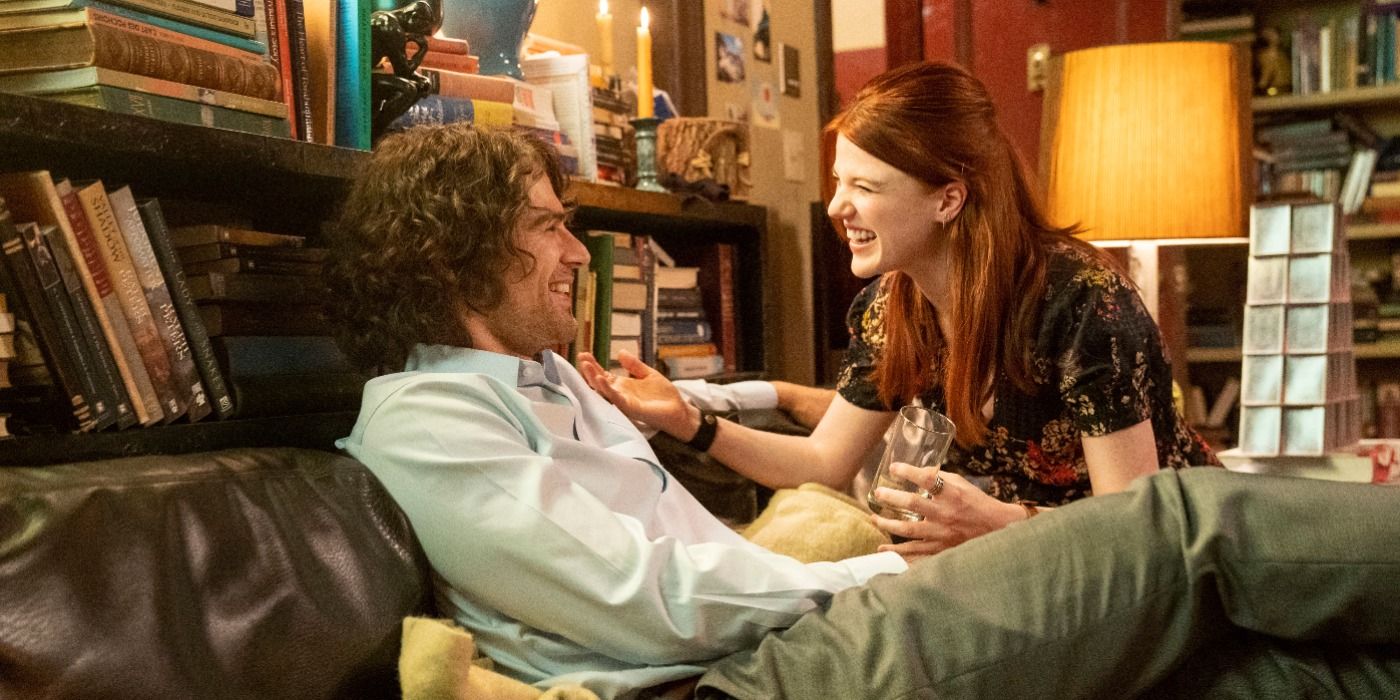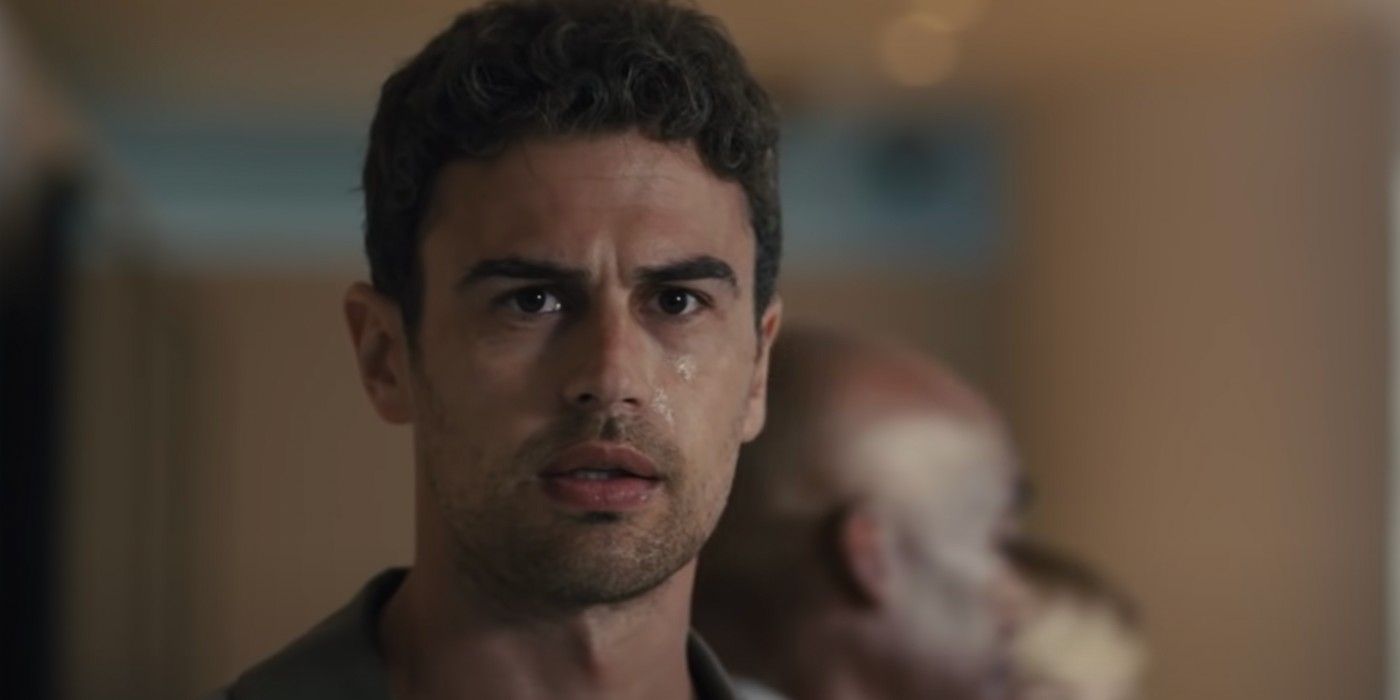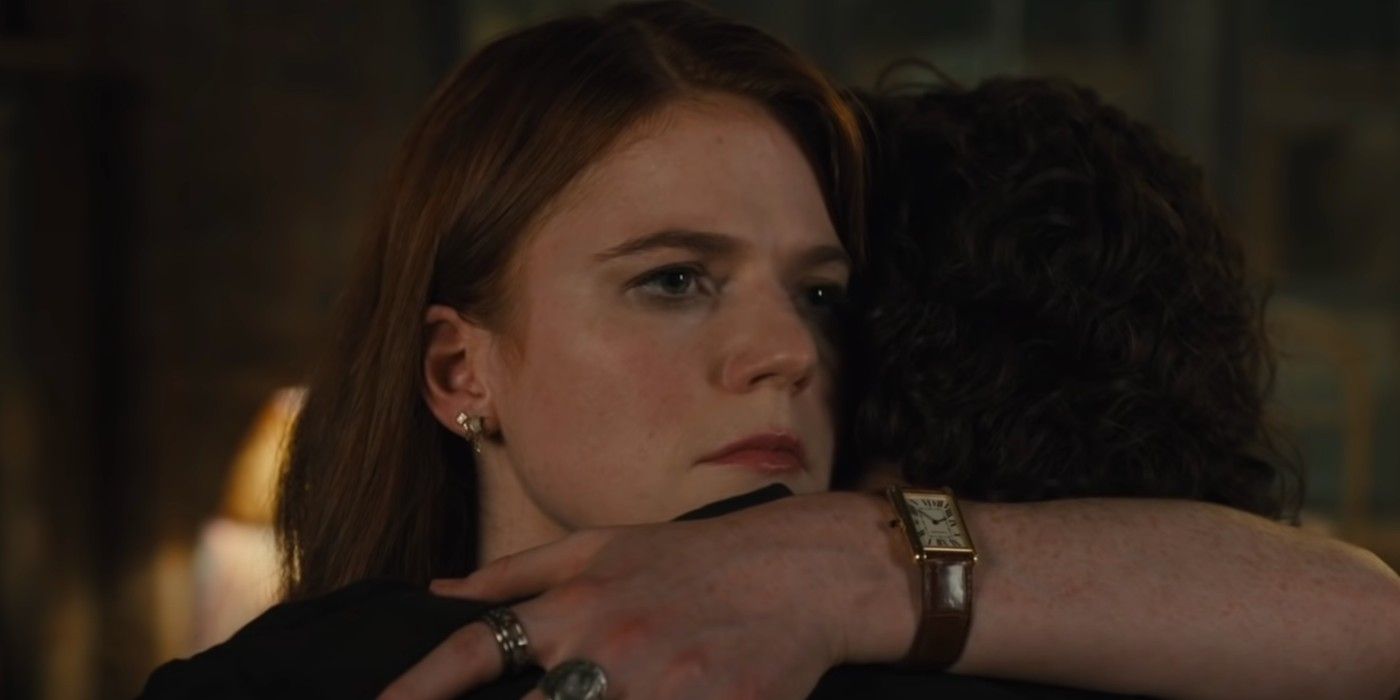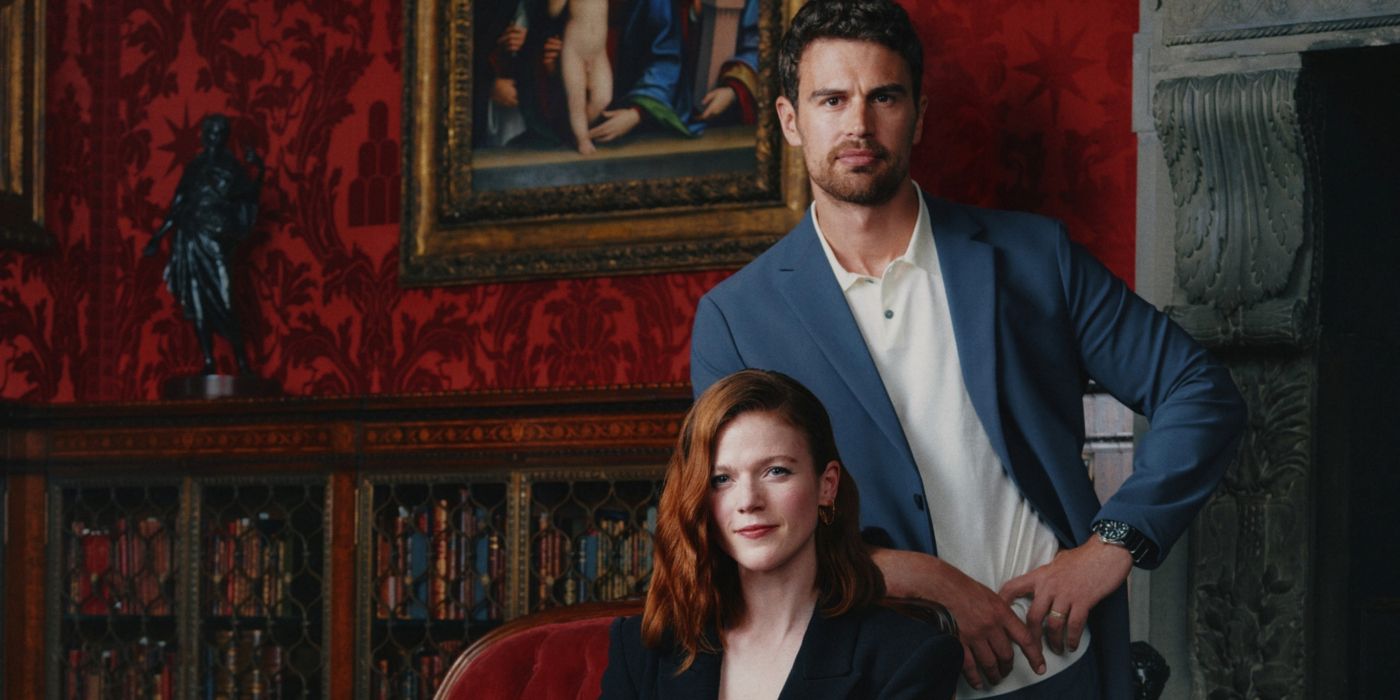
[ad_1]
Adapted by Steven Moffat (Sherlock, Doctor Who) from the novel by Audrey Niffenegger and directed by David Nutter (Game of Thrones), the six-episode HBO drama series The Time Traveler’s Wife tells the out-of-order love story between Clare (Rose Leslie) and HenryTheo James), as their relationship spans time in inexplicable ways. Henry meets Clare when she’s 6, and while he’s a time traveler who knows that they’ll eventually be married, she doesn’t initially feel as warmly about that fact as he does, having her own triumphs and tragedies until she comes to realize what they mean to each other.
During this interview with Collider, Moffat and Nutter talked about deciding how much of Clare and Henry’s story to tell this season, knowing how much of the story they’d do each time around, why Nutter felt so personally connected to this material, the emotional moment in Episode 2 when Clare meets Henry’s mother in a very unique way, how twists and surprises should still work even when you know they’re coming, the challenges of shooting one actor playing different ages of a character at the same time and in the same scene, and whether Moffat has ever considered trying his hand and directing.
Collider: Let’s get the most important question out of the way first. . . Season 2, when?
STEVEN MOFFAT: You’d have to ask HBO. We don’t know. We’ll go do it right now.
DAVID NUTTER: If a lot of people watch, we’ll get closer to that answer.
MOFFAT: Yeah, absolutely. I might have to write some stuff first. I have written some stuff.
I’m asking because I watched the whole season and clearly there’s more story to tell. Steven, how did you decide what portion of the story you wanted to tell this season and how much you wanted to leave unresolved for another possible season? How do you work all that out?
MOFFAT: You make it sound very difficult. It’s not, hugely. I have a notion of exactly how long this is gonna run. I’m not really saying, but I know how much of the story we’d do each time and I think it all makes sense. I think the way this story progresses is through the natural steps of a relationship, albeit a strange one, like the first date, meeting the parents, meeting his parents, meeting the friends, having dinner, having the inappropriate conversation about exes, and all those things that happen in the state of a relationship. It’s a show about detail, so you make your way slowly through it. And I love a wedding, at the end. What’s wrong with that?
David, you’ve directed so many great shows. What gets you to say yes? How and when do you know that it’s a project that you want to do? Is that something you come to pretty quickly?
NUTTER: It’s interesting, I’ve had a lot of success with Warner Bros. and Peter Roth, for many, many years. We came up with a formula where, unless I love it, I won’t do it, and he respects that. When I read this, this is a story, with elements of this story, that I wanted to tell, all my life. And I didn’t just want to direct one episode, I wanted to direct all of them because that’s how much it meant to me. This is the most powerful and moving and splendid work I’ve ever done, and the most splendid, amazing script I’ve ever worked on. It’s pretty simple, it’s about falling in love. You can’t explain it, but when you do, you do. And so, I had to be involved in this.
When you get something like that, where you know you want to direct all the episodes, is it a feeling of, “That’s so cool that I found something that I want to direct all the episodes of,” or is it like, “Oh shit, I can’t believe I’m actually going to take all of this on ”?
NUTTER: It’s interesting, my wife passed away with pancreatic cancer, three years ago, and I read this script and said, “This is the script.” I wish she’d seen me direct this because this is how much I love my wife. I kept saying to myself, “I hope they have nice TVs up in heaven,” because I hope this is something that she’s gonna watch and get to know me a little better. That was basically what I felt, the simplicity of that. It was the most difficult project I’ve ever directed, but it’s also, in some ways, the simplest because I could relate to it so well. Steven was so clear with his own direction and attitude that I got it right away, and I just had a lot of fun. And we had a great crew and amazing actors that made it all worthwhile.
For me, one of the most powerful, most moving, and most heartbreaking moments is in episode two, with how Henry introduces Clare to his mother. I don’t know if it’s because I’ve lost my own mother, but that moment caught me by surprise, emotionally, and I was full-on ugly crying, watching that. Steven, how do you know when you really hit on the emotion of something like that? Is it a feeling you get when you’re writing something? Is it watching the actors deliver it? How does that work for you?
MOFFAT: You have to feel it when you’re writing it, or no one is ever going to. That was an emotional scene to write. It’s about the death of a mother. It’s about wanting to tell your mother that you’ve met someone very important, but you can’t do that, and you’re finding a way to make a connection. I always used to say, when I was writing comedy, that the job of a comedy right is to stare out the window until you laugh, and then write it down. With a scene like that, you have to stare out the window until you nearly cry, and then write it down. You have to feel it. You have to find a way to make it happen that forces the audience into their own lives.
You’re not gonna cry about fictional characters. You know it’s made up. In your heart, you know that it’s Theo [James] and that girl from Game of Thrones (Rose Leslie), and they’re just playing characters. How do you make people cry when it’s not real? Because you force them into their own lives and their own moments that are similar, whether they’ve actually happened or are just happening in prospect. You talk about trying to write truthfully, and that’s what it means. To write truthfully means that you actually think, “I know what it is to feel that,” and the moment you think that way, you are feeling it. So, you do that, as best you can, and then you hope for great directors and great actors and brilliant music, and all that. That all helps too.
NUTTER: For my own self, I wanna involve the audience. I don’t want them to just witness it. I want them to be involved. After a couple of years of COVID and all the craziness of that, I wanted people to know that it’s okay to feel again, it’s okay to fall in love again, and it’s okay to have these feelings. Each of us have them, and so many of us have had them cooped up for too long of a time. I think this show will help us rediscover that.
That whole scene is so beautiful, and it really does hit you suddenly.
MOFFAT: I’m really, really glad you think that. That’s really wonderful.
Steven, you’ve talked about how you love twists and surprises and a tricky plot. When you’re working from the source material, how did you want to ensure that there would still be those moments for people who come to this already familiar with the story you’re telling? Did you make any major changes with this?
MOFFAT: There are changes. For instance, the scene you just described, doesn’t take place in the book like that. First of all, the important thing about a twist or a surprise is it should still work, even if you know it’s coming. That’s the most important thing about a twist and a surprise. A lot of people will figure it out. A good twist is a good twist, even if you’ve seen it 17 times. That doesn’t matter. I’m certainly not changing anything, in order to preserve surprises. If people have read the book, they’ve read the book, and so they should. It’s wonderful.
I’m not gonna make major changes to the mechanics of the narrative. I’m just not. It’s more often the case that I’ve added, rather than I’ve altered. There are things I’ve altered, but that’s all to do with how differently narrative works on television, than it does in a book. A book is a beginning, a middle and an end. A TV show needs a beginning, a middle and an end, once a week. That’s a very different shape of story. And you cry at different things on screen then you cry at in a novel. It’s just different. I want people to love the series in the same way as they love the book, but that doesn’t necessarily mean that everything is done in the same way. But a lot of it is.
NUTTER: I also feel that this is a show you don’t want to binge. I want people to watch the first week, and then let that seep in and get under their skin. And then, watch the second week and let that do the same thing. That, in itself, is gonna make this show the most unforgettable love story you’ve ever watched.
David, what are the challenges of doing something where you have an actor playing different ages of the character? Have we come a long way since The Parent Trapor is it still something that’s very complicated to do?
NUTTER: It’s complicated to do, but you rehearse and rehearse and rehearse. Steven wrote these characters with their own personality and their own attitude and their own feel. That was something that we followed it to the T. It was a situation in which the actors, Theo and Rose, would just keep rehearsing until it was right, and they felt honest with what they were doing. To me, that was very important. I also hired a guy, by the name of Terry Notary, who taught the actors to walk like apes for The Planet of the Apes, and I think that helped them. Henry at 21 would feel a whole lot differently about his own physicality and his own emotional self then he would at 41. The more we involved all that into the character, it made it more complicated, but also made it more real.
Steven, you’ve been a writer and an executive producer on so many different projects. How come you’ve never crossed over into directing? Is that something that you’ve considered? Do you want to do that?
MOFFAT: Yes, I’ve always wanted to have a crack at it, but the truth is that I’ve been so ridiculously busy for so many years that I could never quite work out when I was supposed to do that and not let down the supply chain of the scripts. When I was doing Doctor Who and Sherlock at the same time, for so many years, it was all I could do to get the scripts off my desk. I’d always be consciously stricken too. What if me directing the episode makes it worse? What’s good about that? In general, on average, the reason we’ve ended up with the triumvirate of the producer, the director, and the writer is because it’s pretty strong. It divides those roles up well, along with the editor. It’s good to have separation of powers, at times. That doesn’t mean I don’t want to give it a crack, but that’s just selfishness and childishness. I’ve always had so much bloody script to get off my desk. I can barely cope with that at the moment, nevermind everything else.
The Time Traveler’s Wife airs on Sunday nights.
Read Next
[ad_2]
Source link





